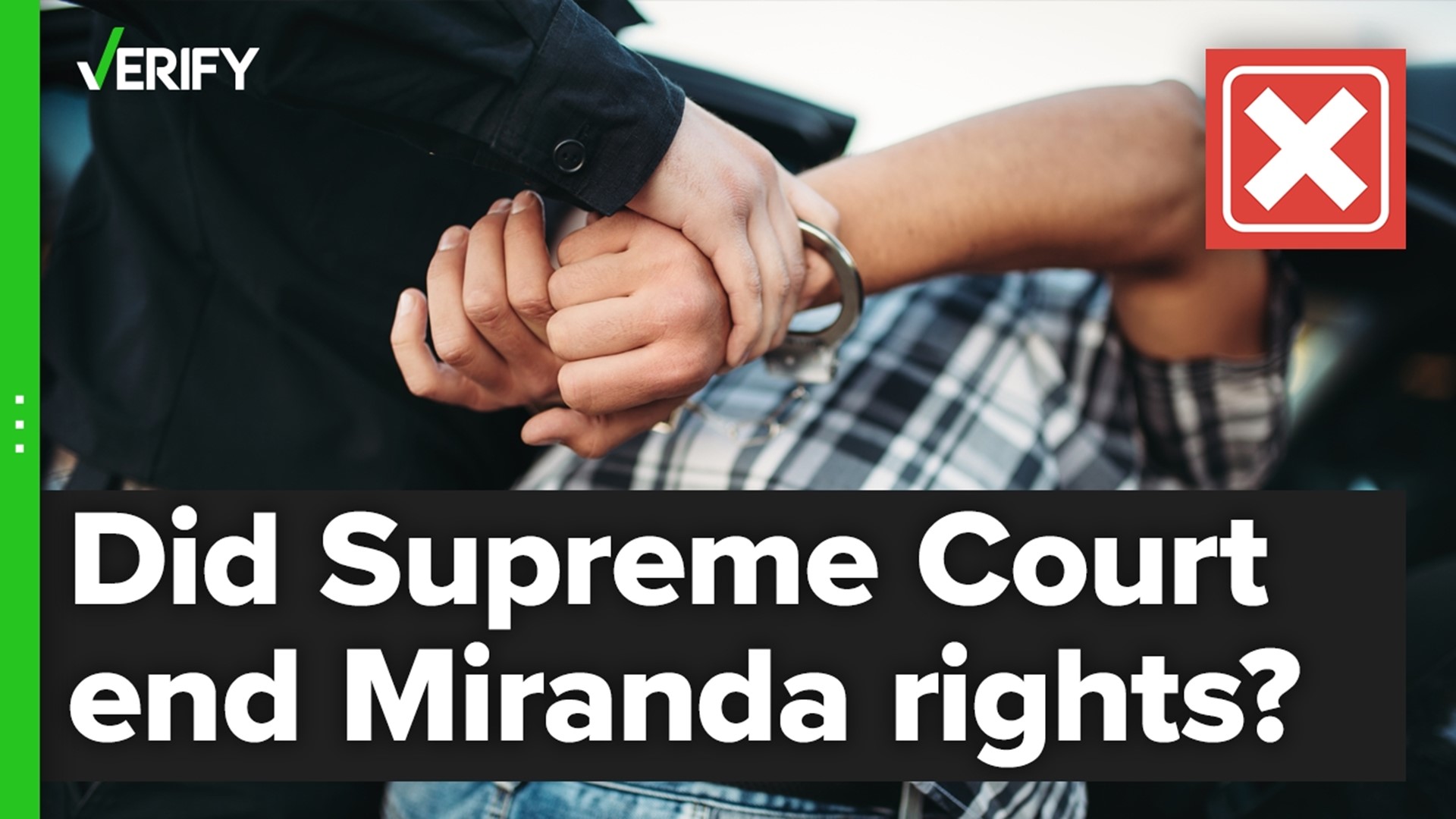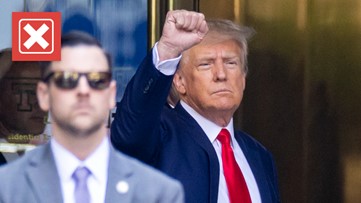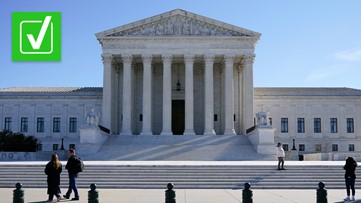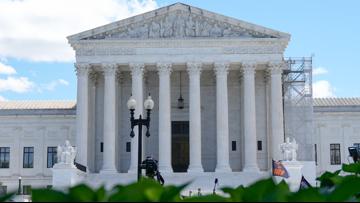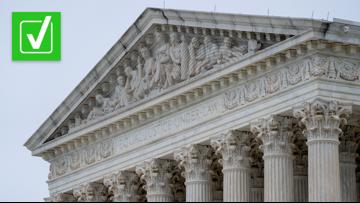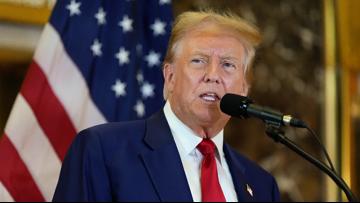On June 23, the Supreme Court issued a decision on Vega v. Tekoh, a case that dealt with an officer who was sued for not reading Miranda warnings to a person he arrested.
Before an officer questions someone who is in custody, they must inform the person of their rights with a notification known as a Miranda warning. That warning tells people that they have the “right to remain silent” and other protections against self-incrimination.
Following the Supreme Court’s decision, several VERIFY viewers reached out to ask if the decision meant that officers no longer have to read out Miranda rights during an arrest.
THE QUESTION
Are law enforcement officers still required to read you your Miranda rights?
THE SOURCES
- Supreme Court Vega v. Tekoh ruling
- David Jaros, Professor of Law and Faculty Director at the University of Baltimore’s Center for Criminal Justice Reform
- Howard Wasserman, Professor of Law at Florida International University
- Skinner Law Firm
- Rittgers & Rittgers Attorneys at Law
- MirandaRights.org
- Supreme Court, Miranda v. Arizona ruling
THE ANSWER
Yes, law enforcement is still required to read you your Miranda rights. The Supreme Court ruling limits citizens’ ability to seek damages if they are not read those rights before questioning.
WHAT WE FOUND
“You have the right to remain silent. Anything you say can and will be used against you in a court of law. You have the right to an attorney. If you cannot afford an attorney, one will be provided for you. Do you understand the rights I have just read to you? With these rights in mind, do you wish to speak to me?”
That statement is known as the Miranda warning. It is a list of rights that law enforcement must explain to someone if they are in custody and subject to questioning.
It’s a common misconception that police must read your Miranda rights before or during your arrest. While many police officers do so, they are only legally required to inform a person of their Miranda rights before questioning them, according to Skinner Law Firm.
If a suspect isn’t read their Miranda rights before questioning by law enforcement, statements or evidence collected could be thrown out of court.
This is known as the exclusionary rule. This legal rule prevents evidence that was collected while someone’s constitutional rights were violated from being used in court.
If they are read their Miranda rights and still make statements to police, the evidence is admitted in court and can be used by the defense or prosecution.
Miranda rights were created in 1966 as a result of Miranda v. Arizona, a Supreme Court case that established that an individual cannot be questioned by police without first being alerted to their right to remain silent and the right to an attorney, rights guaranteed by the Fifth and Sixth Amendments of the U.S. Constitution.
In Vega v. Tekoh, the justices ruled 6-3 in favor of Carlos Vega, a Los Angeles County sheriff’s deputy who was sued after he failed to read a Miranda warning to a hospital worker accused of sexually assaulting a patient.
The 2022 Vega v. Tekoh ruling does not change whether a law enforcement officer is required to read someone their Miranda rights. What the ruling actually does is limit a citizen’s ability to seek damages if they are not read their Miranda rights before questioning, and information gained is later used in court. This is because the ruling says “a violation of Miranda does not necessarily constitute a violation of the Constitution'' and thus doesn’t provide the grounds for bringing a lawsuit.
That means a person can no longer sue law enforcement for violating their Fifth Amendment right against self-incrimination by failing to provide the Miranda warning and using self-incriminating evidence in court.
But the ruling does not change what can or can’t be used against someone in a criminal court of law.
David Jaros, a professor at the University of Baltimore’s Center for Criminal Justice Reform, told VERIFY if a law enforcement officer doesn’t read someone their Miranda rights, and the person arrested says something self-incriminating, it still wouldn’t be allowed to be used in court.
Howard Wasserman, a professor of law at Florida International University, told VERIFY it is difficult to tell how significant the Vega v. Tekoh ruling regarding civil damages will be, because multiple things have to happen for there to be a Miranda violation.
“In order for the violation to be complete, you need the officer to fail to give you the warnings, then you need the prosecutor to take the sworn statement and offer it into evidence. And then you need the judge to admit the statement into evidence. And all three of those things have to happen in order for there to be a Miranda violation,” Wasserman said.
Wasserman said it is uncommon for all three of those things to happen, which makes Miranda violations a relatively rare occurrence.
Jaros reiterates that a person still has the constitutional right to protect themselves from self-incrimination. Vega v. Tekoh didn’t change that.
“You absolutely still have a right to remain silent. Nothing has changed about that. And the police are still obligated to read you your rights. And if they fail to, the proper remedy for that is that statement should not be available to be used against you,” Jaros told VERIFY.
